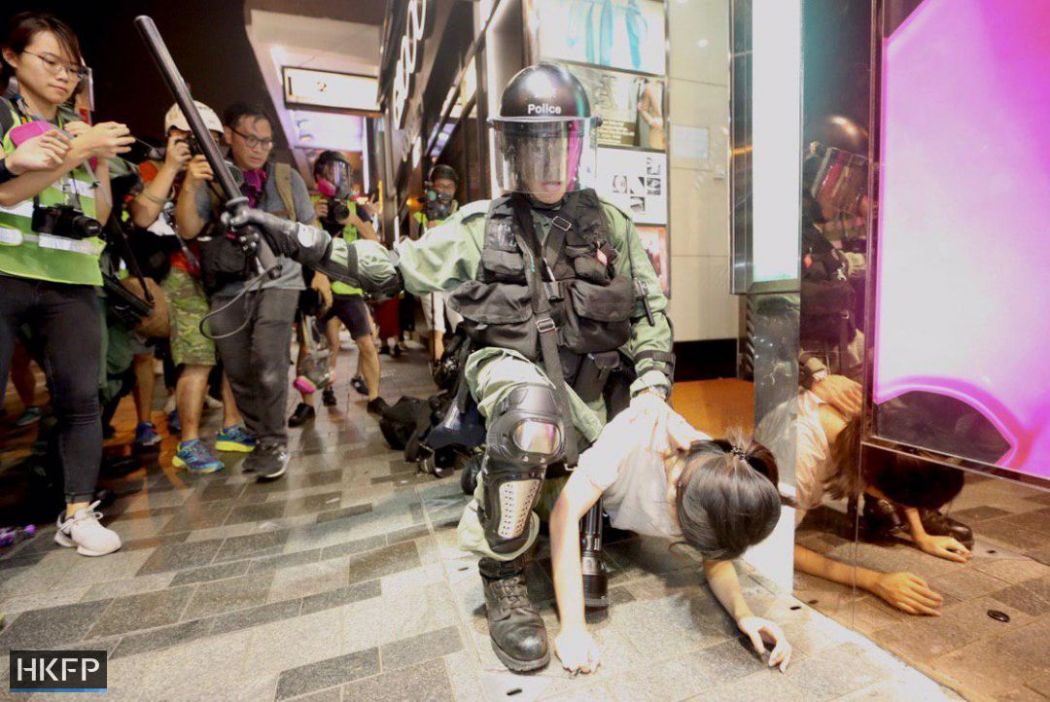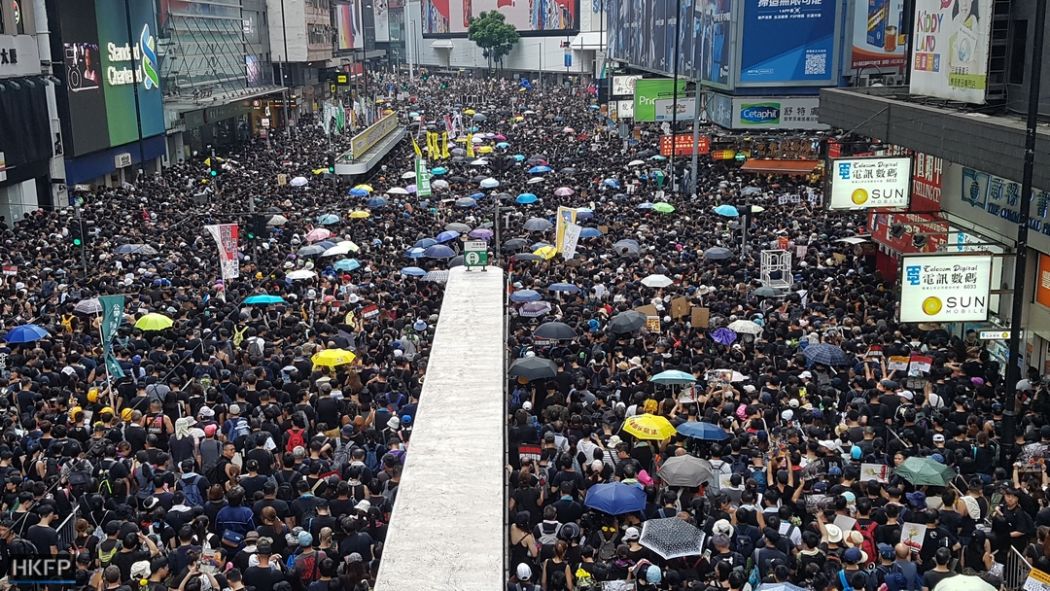How dangerous is the situation in Hong Kong? The simple answer is very dangerous. For once it is possible to agree with Yang Guang, the Hong Kong and Macau Office spokesman, who says that it is a “critical moment.”
The dangers of fatalities, in addition to six suicides already reported, is high and the bigger nightmare of resolving the situation by use of force cannot be discounted. Beijing is ramping up its characterisation of the protests in a manner that justifies military intervention.
The Communist Party is giving every indication that it really does not want a solution to the unrest but a crushing defeat of the democracy movement.

Intead of reaching out to the people of Hong Kong, the mainland authorities have been launching increasingly ominous displays of police and People’s Liberation Army ability to handle civil unrest.
The Hong Kong police meanwhile have more or less been given carte blanche to do what they want on the streets and are sufficiently emboldened to simply face down any criticism while openly admitting to using what is politely known as unorthodox methods.
As for Carrie Lam, the Chief Executive in Name Only (CENO), she is working overtime to underline her irrelevance, this week saying that she had no control over the police force and when asked whether she could, for example, withdraw the extradition legislation without permission from Beijing, she pointedly refused to answer.
On the protestors’ side of the equation, mindless anger and fury have all too frequently overtaken the calm discipline and restraint which, hitherto, had been the hallmark of Hong Kong protests. It is entirely possible that agents provocateurs are at work, helping to fulfil the official narrative that the only issue that matters is one of law and order.

The net result is there for all to see. Protestors who, for example, garnered a high degree of goodwill from airport users started facing hostility after they inexplicably decided to block passengers from boarding their flights. Weaponry that is clearly offensive is being deployed and assaults are taking place that paint a picture of mindless violence.
A protestor I spoke to at the airport said she was worried about those who were engaged in violent activities but said “we sort of need them because the more peaceful protests don’t move the government’s position.”
Herein lies the core of the dilemma because it is indeed a fact that even when two million people took to the streets in peaceful protest, their demands were summarily dismissed out of hand by the CENO.

No wonder citizens are angry, maybe in despair and determined to vent that anger in aggressive ways. But this is nothing more than mindless self-indulgence and people from the democracy side of the fence need to be prepared to say this. Some of them seem to be afraid of being outflanked by young radicals in their commitment to the cause of democracy, others have more justified concerns over splitting the movement.
However, when you see someone standing on a burning bridge, the best response can never be to tip that person over the edge. Putting out the fire is the obvious priority even if it leaves a weakened bridge that could collapse at any time.
The difference between the protestors and Hong Kong’s masters, egged on by local sycophants, is that the faux patriots really couldn’t care what happens to the SAR if it means that the Communist Party loses control.
On the other hand, the people who are marching on the streets, declaring themselves to be “Hongkongers” have a passionate desire to preserve Hong Kong’s unique status in China, to celebrate the differences that divide the SAR from the rest of the country and to protect a culture, nurtured in a strange melee of distinct Cantonese influences combined with a degree of internationalism that does not exist in the rest of the nation.

Meanwhile, many protestors are developing a martyrdom complex, prepared to sacrifice all regardless of the consequences. This is both noble and crazy. Change is a process that takes time but counselling patience and restraint are unlikely to find many takers in the current febrile atmosphere.
That does not mean that retreat and silence is the answer. The momentum of protest must be maintained.
And while the spotlight is on the more dramatic developments, let’s not forget the enormous creativity and flexibility of these protests which have literally spread to every corner of Hong Kong, which have seen a flourishing of artistic responses to repression, which have given citizens an amazing platform in the shape of the Lennon Walls in every district and which have learned from the past mistakes of creating static targets for the police to shut down and avoided having a leadership core that is vulnerable to spending long periods in jail.
All this is amazing and needs to be applauded but it is being undermined by the outbreaks of violence.

Yet, with some justification, it can be argued that facing up to a brutal dictatorship cannot be done without cracking some heads.
However what really makes dictators tremble is their inability to garner popular support, their reliance on repression to cling onto power and their inherent paranoia which always causes the ruling elite to fight among themselves. So, when the dictators fall, they do so with astonishing rapidity and those who have managed to sustain the opposition find, yet again, that they are on the right side of history.
Hong Kong Free Press relies on direct reader support. Help safeguard independent journalism and press freedom as we invest more in freelancers, overtime, safety gear & insurance during this summer’s protests. 10 ways to support us.

